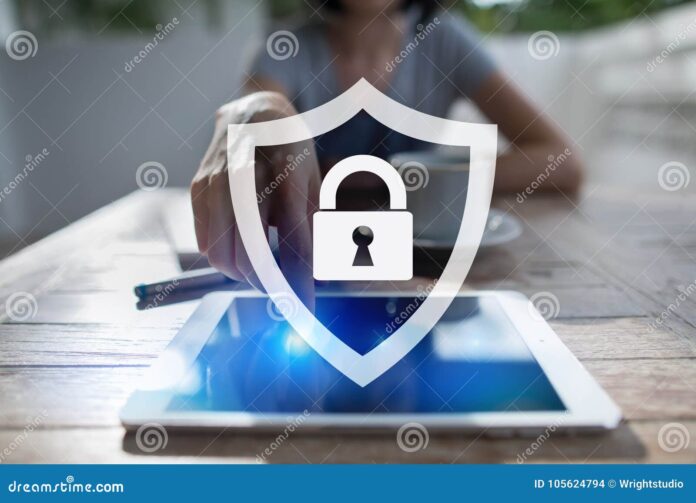
You can never understate the importance of protecting your home computer in today’s world where everything is getting digitized. With cyber threats always progressing, people must take measures to shield their other devices and personal information. This beginner’s guide will offer you the basic information that is required to make household cybersecurity more robust.
Understanding Home Cybersecurity
At the highest level, home cybersecurity is how you keep that computer — and any other devices connected to possibly insecure networks or hardware in your house — from being hacked. From malware and viruses to phishing attacks and identity theft — the threats are endless. An attacker can exploit just a single vulnerability in your system to extract all of your personal data and reduce financial loss.
Why Home Cyber Security Matters
The rise of remote work, online banking, and social media has made home computers attractive targets for cybercriminals. According to a report from Cybersecurity Ventures, global cybercrime damages are expected to exceed $10 trillion annually by 2025. This statistic underscores the importance of securing your home network and devices.
Essential Steps for Home Computer Security
Use Strong Passwords
The first line of defense in home cybersecurity is creating strong, unique passwords for all your accounts. A strong password typically consists of at least 12 characters, including a mix of uppercase and lowercase letters, numbers, and special symbols. Avoid using easily guessable information, such as birthdays or common words. Consider using a password manager to help you generate and store complex passwords securely.
Enable Two-Factor Authentication (2FA)
Two-factor authentication adds an additional layer of security by requiring you to provide two forms of identification before accessing your accounts. This typically involves entering your password and then confirming your identity via a code sent to your mobile device or email. Enabling 2FA can significantly reduce the risk of unauthorized access.
Keep Software Updated
Regularly updating your operating system, software, and applications is vital for home cybersecurity. Software updates often include security patches that protect against known vulnerabilities. Enable automatic updates whenever possible to ensure you’re always running the latest version of your software.
Install Antivirus and Anti-Malware Software
Antivirus and anti-malware programs are essential for detecting and removing malicious software from your computer. Choose reputable software, and make sure to keep it updated to provide real-time protection against new threats. Perform regular scans to identify any potential issues.
Secure Your Wi-Fi Network
Your home Wi-Fi network is a potential entry point for cybercriminals. To enhance your home cybersecurity, change the default SSID (network name) and password of your router. Use WPA3 encryption if available, as it provides the strongest protection. Additionally, consider disabling remote management features and enabling a firewall to monitor incoming and outgoing traffic.
Be Wary of Phishing Attacks
Phishing attacks are deceptive attempts to obtain sensitive information, often through email or malicious websites. Be cautious when clicking on links or downloading attachments from unknown sources. Always verify the sender’s email address and look for signs of phishing, such as poor grammar or suspicious requests.
Backup Your Data
Regularly backing up your important files ensures that you can recover your data in the event of a cyber attack or hardware failure. Use an external hard drive or cloud storage service to create backups. Implement a schedule for automatic backups to ensure your data is consistently protected.
Educate Your Family
Cybersecurity awareness is critical for effective home computer security. Educate yourself and your family members about common cyber threats and safe online practices. Regularly discuss potential risks and encourage everyone to adopt good cybersecurity habits.
Use a Virtual Private Network
A VPN can enhance your online privacy and security, especially when using public Wi-Fi networks. By encrypting your internet connection, a VPN protects your data from potential eavesdroppers. Consider using a reputable VPN service to secure your browsing activities.
Monitor Your Accounts and Devices
Monitor your financial and Internet accounts regularly for suspicious activity. Enable transaction alerts, and look at identity theft protection. Meanwhile make sure that your devices are not showing any signs of being compromised, like slow performance or sudden pop-ups which may surmise the malware infections.
Given that the home is under attack from malicious cyber operations, ensuring protection of your data and any devices you have at home should come as a priority. The only way to avoid these is to be aware of the above basic guidelines and also follow the latest trends in Cyber Security which you will need more of here. Even though you are at home, securing your computer easily helps to secure the data and also helps create a safer online environment for everyone. Cybersecurity, after all, is never a set-it-and-forget process; it requires consistent upkeep and effort — but the peace of mind more than pays for itself.
Find a Home-Based Business to Start-Up >>> Hundreds of Business Listings.














































